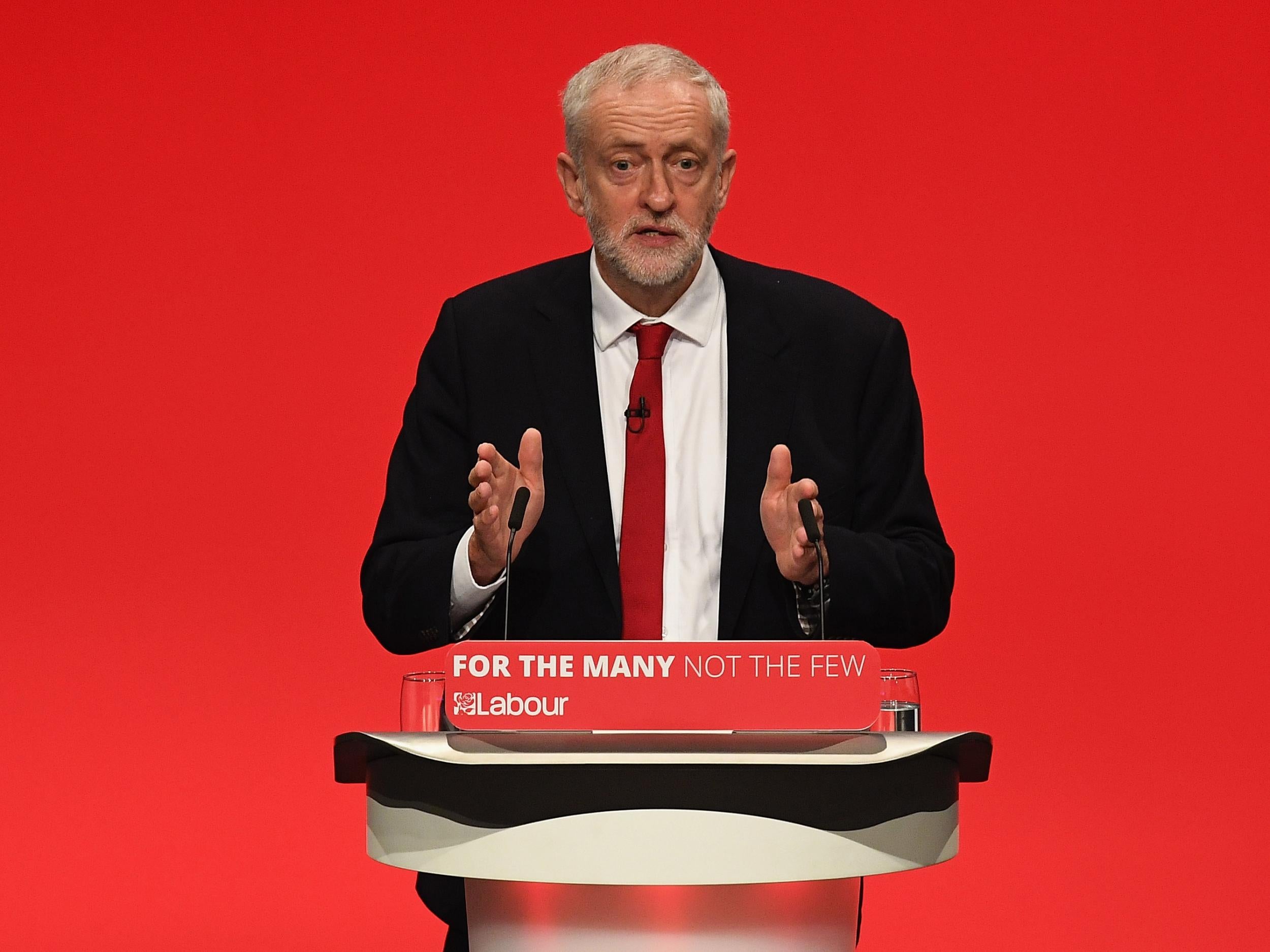Labour pull clear of Tories as new poll shows voters prefer Corbyn over May as PM
Exclusive: The Labour Party has taken a decisive lead in the polls, and the public now thinks Corbyn would make a better Prime Minister than Theresa May

Theresa May’s crisis has deepened today with a new poll showing Labour surging ahead of the Conservatives, while the public now also has a clear preference for Jeremy Corbyn as Prime Minister.
The exclusive survey for The Independent by BMG Research now has Labour five points ahead of the Tories, who are still reeling from a coup launched by ex-ministers to overthrow Ms May.
Mr Corbyn, fresh from a conference at which he cemented his position, has a two point lead over Ms May in terms of who the public would prefer to be running the country.
The numbers represent a stunning reversal in fortune for both the Tories and Labour, and the poll heaps yet more problems on top of Theresa May, whose authority had already been undermined by Boris Johnson even before her catastrophic conference speech.
The under-fire PM also faces pressure from the European Union where leaders in France and Germany signalled they would not allow Brexit talks to progress on to trade.
The study by BMG Research gives Labour a four point increase to 42 per cent, while the Conservatives fell two to 37 per cent.
In a separate question on who would make the better Prime Minister, Theresa May fell two points to 30 per cent, while Jeremy Corbyn rose four points to 32 per cent.
Mr Corbyn’s own overall net approval ratings are at 0 per cent, meaning as many people said they approved of his performance as leader as those who did not – a huge increase from the most recent poll, which put him at minus 10 per cent. Ms May’s approval rating is at minus 19 per cent.
The personal backing of Mr Corbyn also stands in marked contrast to a poll in mid-September, which revealed the party’s policies on things like the renationalisation of the railways and an end to the public sector pay cap were popular but the party were not yet seen as a “government in waiting”, and Mr Corbyn was not regarded as a potential Prime Minister.
Mr Corbyn went into party conference season with 55 per cent of respondents saying they were dissatisfied with his performance as Opposition leader and 45 per cent saying they were satisfied, giving him a net score of minus 10.

The latest figures show only a one per cent drop for the Prime Minister from before conference season, from minus 18 per cent to minus 19 per cent, but these numbers do not consider any change in perception as a result of Wednesday’s speech.
If there were a general election tomorrow, 33 per cent of people said they would vote Conservative, leaving them neck and neck with Labour, also on 33 per cent.
Six per cent of people said they would vote Liberal Democrat, four per cent of people would vote Ukip.
The poll, conducted between 26 and 29 September, came before Ms May’s own disastrous conference speech, which itself came at the end of a particularly lacklustre party conference, characterised by a lack of enthusiasm from the crowd and continuing stories of infighting and disloyalty in the media.
On Friday, backbench MP and former party chairman Grant Shapps made a series of media appearances, claiming to have a list of 30 MPs willing to sign the papers necessary to mount a leadership challenge to the Prime Minister; 48 signatures are required for a challenge to take place. Mr Shapps was told to “shut up” by former leadership hopeful Andrea Leadsom, and Scottish Tory leader Ruth Davidson also pleaded for more unity in the party.
Ms May’s conference speech has been received as a disaster, after it was interrupted by a heckler handing her a P45, she lost her voice and was unable to speak for several minutes and the backdrop fell apart behind her.
On the eve of the conference, Boris Johnson gave an interview to The Sun in which he set out his own “red lines” on Brexit, demarcating his position from that of the Government’s.
Ms May also faces the prospect of France and Germany rejecting her Brexit negotiation proposal to establish a two-year transitional arrangement, until the “divorce settlement” has been concluded, essentially killing off what had been seen as a breakthrough in her Florence speech.
A poll published in Saturday’s Telegraph found the public’s trust in the Prime Minister’s handling of Brexit talks has hit an all-time low.
Jeremy Corbyn’s rising public approval should be seen in context of the very real possibility of there being no general election for five years, at which point he will be 73 years of age. But the Labour Party conference accepted a recommendation from the party’s National Executive Committee to mean that a future leader can stand with only 10 per cent approval of the party’s MPs, making it much easier for Mr Corbyn to hand over to a like-minded successor.
BMG Research interviewed a representative sample of 1,910 British adults aged 18 and over between 26-29 September 2017.
Join our commenting forum
Join thought-provoking conversations, follow other Independent readers and see their replies
Comments
Bookmark popover
Removed from bookmarks